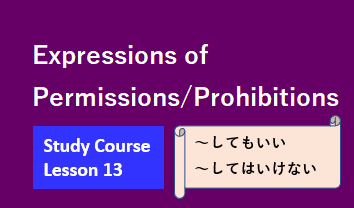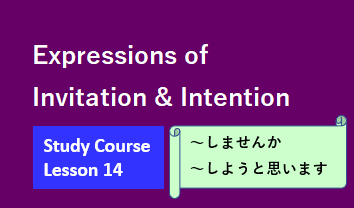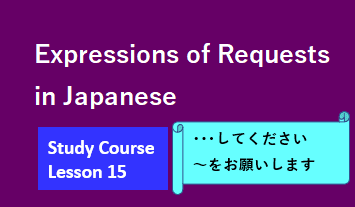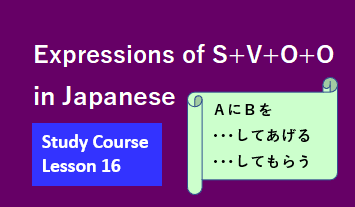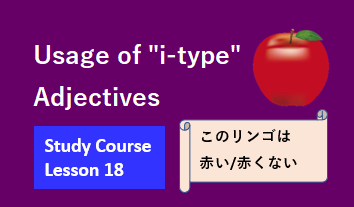Japanese Study Course Lesson1

Hello everyone. I'm Lady JJ. Nice to meet you! Welcome to Japanese Study Course. I will be in charge of the Japanese course, so please call me "JJ". Come on, let's start the Japanese course together! In lesson 1, we will study the basics of Japanese pronouns.
Pronouns are the basis of grammar. Regarding pronouns, I think Japanese is easier to learn than English because it’s simpler than English, such as the nominative and objective cases of personal pronouns having the same shape. Now, let's check the list of personal pronouns, possessive pronouns, demonstrative pronouns, and interrogative pronouns.

We have good news for you!
In KANBE Ryusho's room, we have just introduced the text-to-speech software "Ondoku-san". Please make full use of the Japanese audio and further improve your Japanese language skills.
Created By ondoku3.com
1-1 Personal pronoun
- The nominative personal pronouns are followed by the particle "が(ga)" or the particle "は(wa) ."
- For example, "I am Lady JJ." would be "私が Lady JJ です。" or "私は Lady JJ です。" in Japanese.
- The nominative particle "が" is used to express a specific person or thing as the subject from among multiple candidates.
- On the other hand, the title particle "は" is used to express the subject as a topic of conversation.
| singular | plural | ||
| first person | |||
| I (nominative) | 私 watashi | we (nominative) | 私たち watashi-tachi |
| my (possessive) | 私の watashi-no | our (possessive) | 私たちの watashi-tachi-no |
| me (objective) | 私 watashi | us (objective) | 私たち watashi-tachi |
| second person | |||
| you (nominative) | あなた anata | you (nominative) | あなたたち anata-tachi |
| your (possessive) | あなたの anata-no | your (possessive) | あなたたちの anata-tachi-no |
| you (objective) | あなた anata | you (objective) | あなたたち anata-tachi |
| third person | |||
| he she it (nominative) | 彼 kare 彼女 kanojo それ sore | they (nominative) | 彼ら karera 彼女ら kanojora それら sorera |
| his her its (possessive) | 彼の kare-no 彼女の kanojo-no その sono | their (possessive) | 彼らの karera-no 彼女らの kanojora-no それらの sorera-no |
| him her it (objective) | 彼 kare 彼女 kanojo それ sore | them (objective) | 彼ら karera 彼女ら kanojora それら sorera |
Hello, everyone! Nice to meet you. I'm Rabbit Boy. I will also join you! Call me "Rabbit.". Please see the following examples!

- If there are many people here and someone asks, "Who is Rabbit Boy?", I answer, "I am Rabbit." In this case, Japanese uses "私が Rabbit です。" and uses "が " as the nominative particle.
- Use the particle "は" when using the subject as the topic of conversation. For example, when I want to talk about my Japanese teacher, JJ, I say, "Lady JJ は私の日本語の先生です。(Lady JJ is my Japanese teacher.)."

Great examples. Rabbit!
◆Advanced Study Differences in the usage of the nominative particle "が" and the title particle "は"
| Nominative particle "が" Main usage Use the particle "が" when describing a specific person/thing as the subject among multiple candidates. Usually, the role of the subject is used to express a specific person or thing as the subject from among multiple candidates, so the general particle that indicates the subject is "が". Example sentences When you want to say that JJ is my Japanese teacher ◎Lady JJ が私の日本語の先生です。(Lady JJ is my Japanese teacher.) When talking about looking forward to a particular event, Christmas ◎クリスマスが楽しみです。(I'm looking forward to Christmas.) △クリスマスは楽しみです。 ➡When talking about a specific event, using this expression to indicate a general topic of conversation can be taken as suggesting that there is another event you are looking forward to. When you want to talk about lunch ×お昼ごはんがもう食べましたか。 ➡Big grammatical mistake! This sentence expresses that as if an unidentifiable monster called lunch has eaten something. ◎お昼ごはんはもう食べましたか。(Have you eaten lunch yet?) |
| Title particle "は" Main usage Use the particle "は" when using the subject as the topic of conversation. Example sentences When you want to talk about Lady JJ ◎Lady JJ は私の日本語の先生です。(Lady JJ is my Japanese teacher.) When you want to talk about lunch ◎お昼ごはんはもう食べましたか。(Have you eaten lunch yet?) When you want to introduce yourself ◎私はRabbitです。日本語講座の生徒です。(I'm Rabbit. I am a student of the Japanese language course.) When asking "Who's Rabbit?" in a crowd of people ×私はRabbitです。 ➡This expression is unnatural as it is clearly required to express a specific person or thing as the subject. ◎私がRabbitです。 |
1-2 Possessive pronoun

When someone asks me, "Whose book is this?", I reply, "It's mine."
Let's say this in Japanese. Usually "もの mono" is omitted and we simply say "私のです watashi-no desu".
| first person | ||
| (singular) | mine | 私の(もの) watashi-no-mono |
| (plural) | ours | 私たちの(もの) watashi-no-mono |
| second person | ||
| (singular/plural) | yours | あなたの(もの) anata-no-mono あなたたちの(もの) anata-tachi-no-mono |
| third person | ||
| (singular) | his hers | 彼の(もの) karera-no-mono 彼女の(もの) kanojora-no-mono |
| (plural) | theirs | 彼らの(もの) karera-no-mono 彼女らの(もの ) kanojora-no-mono |
1-3 Demonstrative pronoun
- Japanese demonstrative pronouns include not only near and far, but also intermediate between near and far, as shown in the table below.
- You may be wondering about the usage of 'between near and far' and 'far', but "あれ are", which indicates far, is quite far away.
(1)Near
| nominative objective | possessive | |
| singular this | これ kore | この kono |
| plural these | これら korera | これらの korerano |
| *reference Adverbs of location here | ここ koko こちら kochira |
(2)Far
| nominative objective | possessive | |
| singular that | あれ are *between near and far それ sore | あの ano *between near and far その sono |
| plural those | あれら arera *between near and far それら sorera | あれらの arera-no *between near and far それらの sorera-no |
| *reference Adverbs of location there | あそこ asoko あちら achira *between near and far そちら sochira |
1-4 Interrogative pronoun
The usage of interrogative pronouns provides concrete example sentences, but you may still find the interrogative pronoun example sentences difficult.

However, we will study the grammar and reading of the examples in earnest, so for now, please don't worry about the details and just look at the usages of the examples.

(1)誰(だれ)
| Who is the tallest? |
| 誰(だれ)が一番(いちばん)背(せ)が高(たか)いですか。 |
| Who is that woman? |
| あの女性(じょせい)は誰(だれ)ですか。 |
| Who did you meet yesterday? |
| あなたは昨日(きのう)誰(だれ)に会(あ)いましたか。 |
| Who did you go to the movies with? |
| あなたは誰(だれ)と映画(えいが)に行(い)ったのですか。 |
| Whose book is this? |
| これは誰(だれ)の本(ほん)ですか。 |
(2)何(なに)
| What happened yesterday? |
| 昨日(きのう)何(なに)が起(お)きたのですか。 |
| What did you hide? |
| あなたは何(なに)を隠(かく)したのですか。 |
| What did you eat for dinner yesterday? |
| あなたは昨日(きのう)夕食(ゆうしょく)で何(なに)を食(た)べましたか。 |
| What are you talking about? |
| あなたは何(なに)について話(はな)しているのですか。 |
(3)どれ
| Which do you want? |
| あなたはどれがほしいですか。 |
(4)どの
| Which tour bus do I take? |
| どのツアーバスに乗(の)りますか。 |
(5)どちら
| Which is more expensive, the red pen or the blue pen? |
| 赤(あか)いペンと青(あお)いペンではどちらが高(たか)いですか。 |
| Which do you drink, coffee or tea? |
| あなたはコーヒーと紅茶(こうちゃ)のどちらを飲(の)みますか。 |
(6)どちらの
| Which dress do you like? |
| あなたはどちらのドレスが好(す)きですか。 |
(7)どんな
| What kind of TV show do you like? |
| あなたはどんなテレビ番組(ばんぐみ)が好(す)きですか。 |
(8)どこ
| Where are you going tomorrow? |
| 明日あなたはどこに行きますか? |
| Where do you come from? |
| あなたのお国(くに)はどこですか? |
(9)いつ
| When will she come back? |
| 彼女はいつ帰ってくるの? |
| Since when have you been here? |
| あなたはいつからここにいたのですか。 |

This is the end of the first study. Dear readers, did you get an idea of how Japanese pronouns are used? Please watch the next lesson! See you!
See you next time!

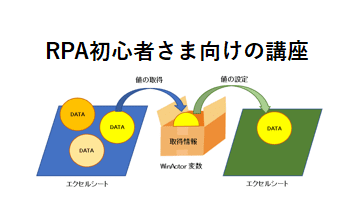

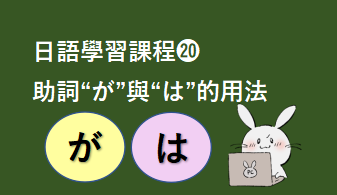






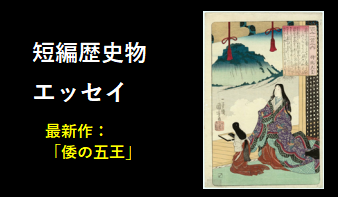














![❽Possible Expressions [1]](https://ryusho-kanbe.com/wp-content/uploads/2023/04/スクリーンショット-2023-04-03-100754.png)
![❾Possible Expressions [2]](https://ryusho-kanbe.com/wp-content/uploads/2023/04/スクリーンショット-2023-04-28-095816.png)



